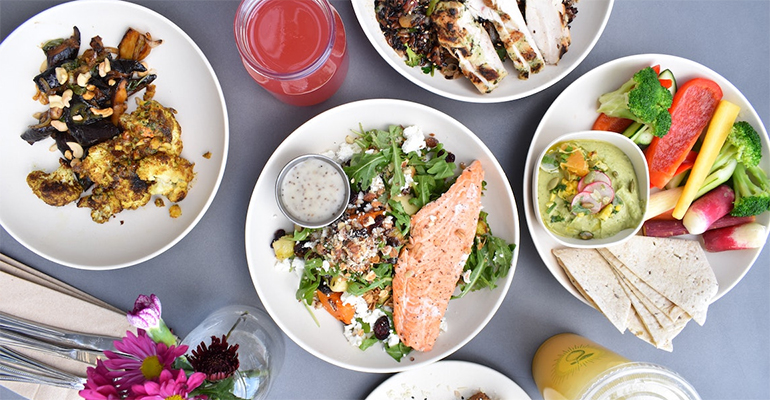News
Euromonitor outlines top food trends for 2021
1 Mar 2021The pandemic unquestionably altered consumer behavior, and going into 2021, Euromonitor International released a report detailing just how different those behaviors will be in a world that is acclimatizing to the realities of a COVID-present world and whether they will stick around for the long term.
In its findings, the market research firm found that consumers will be demanding, anxious, and creative in dealing with change, and as a result, resilience and adaptability to be the driving forces behind the top global consumer trends in 2021. Brands featuring purpose-driven initiatives, facilitating convenience and spontaneity through e-commerce, and catering to consumers concerned with safety as well as self-fulfillment will be those businesses that pull ahead in the coming year.

Throughout its trend list, Euromonitor repeatedly identified applications for technology in consumer interaction. From QR codes on packaging to help consumers avoid unnecessary touching of packaging to the incorporation of VR and AR in order to incorporate the immersive online connection experiences that people are seeking, companies need to look beyond just what is inside of a package and consider what is on the outside as well.
Wellness is another trend that wove its way through Euromonitor’s list and even received its own shoutout as a trend that merits the attention of manufacturers and retailers. While better-for-you and health-conscious consumers have been a driving force behind product development and market trends in recent years, going into 2021, consumers are going to be more serious as wellness bleeds into safety concerns. Consumer needs will evolve from basic hygiene to general health, and solutions like curbside pickup, e-commerce and contactless payment will be attractive. Data from Euromonitor show that 44% of consumers are now comfortable with the idea of receiving a delivery from a drone or a robot, indicating that the movement to automized delivery and less in-person shopping may now compete long-term against more traditional retail channels and will require manufacturers to reconsider their supply chains and distribution channels for consumers that are no longer interested in shopping in person due to hygeine concerns.
However, that’s not to say that better-for-you products have taken a back seat. Now more than ever, consumers are looking to food and beverage as a tool to help them become their healthiest selves from the inside out. Consumers previously turned to quick-fix products and services like functional foods, self-indulgent luxuries and technologies that supported mindfulness, but now mental wellbeing has become the primary consideration for many. As a result, consumers are resorting to nostalgic comforts like childhood snacks that provide immediate stress relief. Mondelez found a similar trend in its annual State of Snacking report which identified comfort as the No. 1 consideration for 53% of consumers who were purchasing nostalgic childhood brands.
Outside of comfort, consumers will continue seeking holistic solutions like diet and lifestyle changes over topical ones to maintain mental health. Some of these changes will come in the form of incorporating more homeopathic wellness solutions into diets. Staci Brinkman, co-founder and CEO of Sips predicts in 2021, anti-inflammatory teas that incorporate ingredients like turmeric, ginger, cinnamon and licorice root will be very popular as the world looks for affordable and accessible remedies to calm the mind and body.
At the same time, not all consumers are interested in bettering themselves through their food choices. Euromonitor found companies are identifying growth opportunities across affordable luxuries like alcoholic drinks and indulgences like packaged food. Thoughtful spending on luxuries will be an important consideration for consumers that are facing economic uncertainty. Limited disposable incomes have already driven a 10% increase in sales growth at discount retailers like Aldi and Lidl between 2019 and 2020. This growth in consumer preference for discount solutions is reflected by a study from the International Food Information Council that found 28% of people were concerned about their ability to afford enough food in 2021.
Nevertheless, Euromonitor pointed out that for those that can afford a little extra, brands should find innovative ways to regain value and enhance the price-value equation. The market research company suggested convenience, increased online penetration, fast last-mile delivery or add-on services as potential solutions.
